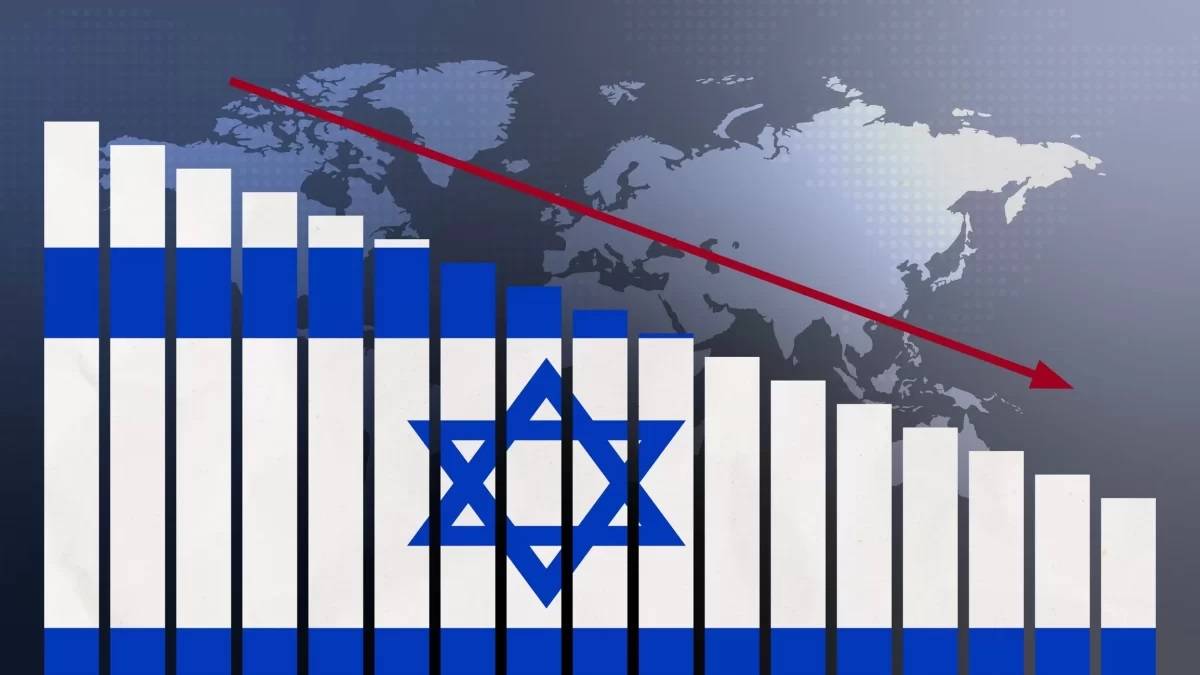2159 Views
The $93 Billion Hangover: Can Israel's Economy Recover After the Gaza War?
Following the ceasefire agreement between the Zionist regime and the Hamas movement, through the efforts and follow-ups of Arab countries and the United States, the Netanyahu government is seeking to establish normal conditions in the occupied territories. One of the crucial matters in managing the post-war environment, in Netanyahu's view, is creating economic tranquility for Zionist settlers. Given the numerous slogans of the founders of the Zionist regime regarding the welfare and economic progress of the people residing in occupied Palestine to attract Jews from around the world, this issue is a kind of Achilles' heel for various Zionist governments in the occupied territories. In the following, the present article will examine the economic situation of the Zionist regime in the post-war environment:
1. Approval of the 2026 Budget under the Shadow of the Gaza War
Under normal circumstances, the deadline for approving the Zionist government's budget is October 31. However, due to the abnormal conditions that have existed for the Netanyahu government in the past two years, this deadline is usually extended. The delay in sending the budget to the Knesset, especially in a situation where the pretext of war and a security atmosphere no longer exists, puts pressure on the Netanyahu government to finalize the budget bill as soon as possible. Given the regime's lack of preparedness, the mentioned bill will be sent to the Knesset with a delay, which will incur heavy costs for the regime's economy. The regime's law states that if conditions for budget approval are not met, the Knesset will be dissolved. This means creating a new crisis for the Netanyahu government.
2. The Situation of Zionist Displaced Persons
The Zionist residents who were displaced from their usurped homes due to the Al-Aqsa Storm operation will, according to estimates by the Netanyahu government, take two years to be able to settle in their new homes. This issue can have significant economic and psychological impacts on the Zionist settlers. This situation also affects the reverse migration of Zionists. In addition, those displaced persons who have been housed in temporary accommodations will impose heavy costs on the regime's fragile economy.
3. The Impact of the End of the Gaza War on Jobs and the Regime's GDP Growth
According to assessments, the implementation of a ceasefire in Gaza will encourage the reopening of businesses in the Zionist regime and reduce their closures. If the regime succeeds in finalizing an agreement with Hamas, morale among business owners is expected to improve and return to pre-war levels, accompanied by a reduction in the Bank of Israel's interest rate to 3.75%. Accordingly, it is estimated that the job creation rate will increase by an average of 5,665 person-jobs, and the monthly business closure rate will decrease by an average of 3,890 jobs, leading to a net addition of 1,775 new jobs per month. The end of the war is expected to have positive impacts on economic activity and lead to a significant increase in GDP. Based on the forecast of the Bank of Israel from September, in a scenario where Israel succeeds in finalizing an agreement with Hamas and ending the war, GDP will grow by 2.9% by the end of this year and by 4.7% in 2026. In this scenario, inflation is expected to reach 2.8% by the end of 2025 and 2.2% by the end of 2026.
4. The Heavy Costs of the War with the People of Gaza
According to studies, the costs of the war and its direct consequences for the regime's economy are estimated at around $93 billion. The regime's economy growth has been suffering a continuous reduction for two years, and this is considered a serious issue for the regime's future budget planning in the post-war environment. This is because the regime's economic plans must focus on compensating for the mentioned debts and striving to create a balanced economic atmosphere. In the past two years, the regime's citizens have faced tax increases and a halt in wage raises. If this trend continues this year, the regime's social capital will severely decline.
In summary, it must be said that the imposed ceasefire, which the regime agreed to, has created an ambiguous economic atmosphere for the Netanyahu government due to the multitude of financial issues it is grappling with. The competitions and conflicts within the Knesset, along with unresolved economic issues and the staggering war debts accumulated over the past two years by the Zionist government, have destabilized the regime's governance. If no solution is found for this situation in the coming months, the collapse of the Netanyahu government is a possibility.
Translated by Ashraf Hemmati from the original Persian article written by Amirali Yeganeh

Comment
Post a comment for this article